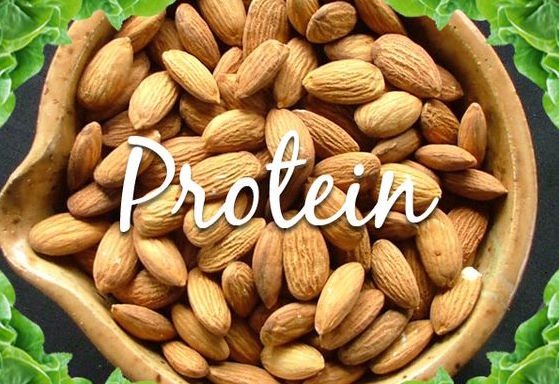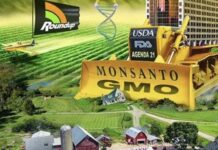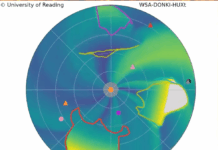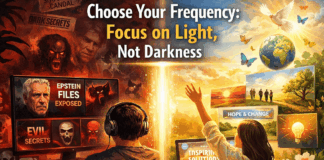
t’s very easy to come across conflicting information, especially in regards to the science of health and even more so when it comes to examining meat-based diets in comparison to plant-based ones. Plant-based diets can help prevent over over 60% of chronic disease deaths, yet people are still arguing whether veganism is a safe and sustainable diet. This is largely due to “food industry science,” which is full of bias and false information that’s constantly used in both our education and health care systems. This is neither a secret nor a conspiracy theory, as many people within these industries have come out publicly to address these issues and emphasize the same points.
“It is simply no longer possible to believe much of the clinical research that is published, or to rely on the judgment of trusted physicians or authoritative medical guidelines. I take no pleasure in this conclusion, which I reached slowly and reluctantly over my two decades as an editor of the New England Journal of Medicine” – Dr. Marcia Angell, a physician and longtime Editor-in-Chief of the New England Medical Journal (source)
A couple years ago, Dr Richard Horton, the current Editor-in-Chief of The Lancet, which is considered to be one of the most reputable medical journals in the world, stated that half of all published literature may be false. In his words, “The case against science is straightforward: much of the scientific literature, perhaps half, may simply be untrue. Afflicted by studies with small sample sizes, tiny effects, invalid exploratory analyses, and flagrant conflicts of interest, together with an obsession for pursuing fashionable trends of dubious importance, science has taken a turn towards darkness.” (source)
These are important points to consider when talking about science and it’s extremely apparent in the food system, especially when discussing plant-based diets. We’ve been hammered with the idea that meat is necessary for good health, even in an age where an enormous amount of professionals and publications have proven the nutritional benefits of a plant-based diet. It seems kind of fishy, especially given the fact that several billion animals are raised and killed for meat production annually, and that’s just in America alone.
Plant-Based Diets Compared To Meat
If we look at ‘mainstream’ science, scientists are only now starting to accept plant-based diets as a sustainable, healthy option and those doing the research are living, walking and talking examples of that.
For instance Dr. Ellsworth Wareham, a 100-year-old, and a recently retired heart surgeon who has been a vegan for half of his life explains that:
“Veganism is a very fine form of nutrition. It’s a little extreme to tell a person who is using flesh foods that you’re going to take everything entirely away from them. When I was in practice in medicine, I would tell the patients that the vegetable-based diet was the healthy way to go, and to keep away from the animal products as much as possible. People are very sensitive about what they eat. You can talk to people about exercising relaxation, good mental attitude and they will accept that. But you talk to them about what they are eating and people are very sensitive about that. If an individual is willing to listen, I will try to explain to them on a scientific basis of how I think it’s better for them.” – Dr. Ellsworth Wareham (source)
Another example is Kim A. Williams, M.D., incoming president of the American College of Cardiology, who also adopted a vegan diet. He often sees patients who are overweight and struggling with hypertension, type 2 diabetes and high cholesterol. One of the things he advises them to do specifically is to go vegan. He is also the Chairman of Cardiology at Rush University Medical Center in Chicago. His enthusiasm for a planet-based diet comes from his interpretation of medical literature, having cited several studies proving that people who pursue vegetarian diets lived longer than meat eaters and have lower rates of death from heart disease, diabetes and kidney problems. (source)
According to Harvard Medical School, “studies are confirming the health benefits of meat-free eating. Nowadays, plant-based eating is recognized as not only nutritionally sufficient but also as a way to reduce the risk for many chronic illnesses.” (source)
There are a multitude of studies showing the benefits of vegetarian and vegan diets. For example, the American Dietetic Association weighed in with a position paper, concluding that “appropriately planned vegetarian diets, including total vegetarian or vegan diets, are healthful, nutritionally adequate, and may provide health benefits in the prevention and treatment of certain diseases.” (Journal of the American Dietetic Association, July 2009) (source)
These diseases include heart disease, cancer, diabetes, and more. Research carried out by Dr. Dean Ornish, who found that patients who were put on a program that included a vegetarian diet had less coronary plaque and fewer cardiac events, is also commonly cited.
It’s also important to note that when it comes to science and making ‘associations,’ it’s crucial to use the Bradford Hill Criteria. We all know that correlation does not mean causation, and that sometimes, correlation could mean causation. When you have a large number of studies showing such strong correlations, it’s generally safe to assume that correlation in certain instances does mean causation. When it comes to plant based diets, there is no shortage of evidence that clearly outlines their health benefits. Obviously, the benefits of eating more plant based foods goes far beyond just correlation.
This trend is gaining more scientific inquiry as popularity grows. At least 542,000 people in Britain now follow a vegan diet – up from 150,000 in 2006 – and another 521,000 vegetarians hope to reduce their consumption of animal products. It is evident that veganism has become one of the fastest growing lifestyle choices. (Source #2)
One of the most comprehensive studies ever performed on this subject is “The China Study” conducted by Drs. T. Colin Campbell and Thomas Campbell. Their findings showed direct correlations between nutrition and heart-disease, diabetes, and cancer, proving that cultures that eat primarily plant-based diets have lower to no instances of these diseases and that switching to a plant-based diet can successfully reverse diseases already established in the body. The China Study is recognized as the most comprehensive nutritional study ever conducted on the relationship between diet and disease. I highly recommend watching the documentary Forks Over Knives (available on Netflix), which delves into this in more detail.
The list of studies goes on and on, and if you’d like to find more information, we recommend you research this subject yourself as there are far too many studies to include in this article.
Plant Protein Compared To Vegan Protein
“The protein in animal products is filled with fats and chemicals and all sorts of stuff that’s harmful to you. When I was competing and stuffing down all that stuff, I had lots of digestive problems, I was constipated and bloated, just miserable all the time. I don’t concern myself with protein anymore, because there is enough in what I eat. I am not only healthy, but I feel better about myself and how I relate to other creatures in the world.”
Above are the words of Jim Morris, one of many competitive vegan bodybuilders, who has been vegan for most of his life. The last time we saw a vegan bodybuilder he was competing at this years Olympic Games in Brazil. His name is Kendrick Farris and he was the only American male weightlifter to compete in the Rio Olympics. You can read more about that here.
If someone tells you, “I need my protein,” and that’s why they eat meat, they are vastly misinformed. You don’t need protein from meat to be healthy; in fact, it is the complete opposite, as plant-based protein is a healthier alternative. Clearly, the bodybuilders adopting these vegan diets are a great example, but let’s look at what some of the ‘experts’ have to say.
According to Dr. Deepak Bhatt, a Harvard Medical School professor and Editor-in-Chief of the Harvard Heart Latter,
“When it comes to getting protein in your diet, meat isn’t the only option. Mounting evidence shows that reducing meat and increasing plant-based protein is a healthier way to go. A diet with any type of meat raises the risk of heart disease and cancer, when compared with a vegetarian diet.” (source)
A more recent study conducted by researchers at Harvard Medical School and Massachusetts General Hospital followed more than 130,000 people for 36 years, monitoring illnesses, lifestyles, diets and mortality rates.
They found that substituting between 15g and 19g of animal protein, the equivalent of a single sausage, for legumes, pulses, nuts and other planet protein, significantly decreased the risk of early death. Replacing eggs with plant-based protein also lead to at 19 percent reduction in death risk.
Researchers found that a 10 percent higher intake of meat was associated with a two percent higher mortality rate and an eight percent higher chance of cardiovascular death.
According to Dr. T. Colin Campbell, mentioned earlier in the article from The China Study,
“What I did during the early part of my career was nothing more than what traditional science would suggest. I made the observation that diets presumably higher in animal protein were associated with liver cancer in the Philippines. When coupled with the extraordinary report from India showing that casein fed to experimental rats at the usual levels of intake dramatically promoted liver cancer, it prompted my 27-year-long study The China Project, of how this effect worked. We did dozens of experiments to see if this was true and, further, how it worked.”
In the study, Campbell emphasized the fact that they used the traditional criteria to decide what is a carcinogen (in regards to animal-based proteins) from the government’s chemical carcinogenesis testing program. Campbell also stated that, “this is not a debatable subject and the implications of this conclusion are staggering in so many ways.”
It also showed, among others, that animal protein is very acidic, and leak, and body takes calcium and phosphorus from the bones to neutralize the acidity.
Below is a video of him explaining some of his findings.
So, Which One Is Better?
Obviously, there is information on both sides. The main point to remember here is that protein isn’t the same.
Protein is built from building blocks known as amino acids, and our bodies make them in two different ways. Perhaps not everybody’s body is the same, and some can require what they need from scratch, or by modifying others.
A short list of amino acids known as theessential amino acids need to come from food. According to current education, which is largely funded by food corporations who control animal agriculture, preaches that animal sources of protein tend to deliver all the amino acids we need. What they leave out about the animal protein is what you just read above.
Other sources of protein lack one or more essential amino acids, but all a vegetarian or vegan individual needs to do is make sure they contain a variety of protein containing foods, which will help the body make more protein.
That being said, studies on caloric restriction and fasting have shown that a high protein intake, too much, is definitely something you don’t want. If you want to learn more about that, you can check out Dr Valter Longo, or check out some more of our articles on fasting.
Certain meats have also been linked to several diseases. For example, research conducted at Harvard School of Public Health has found that eating even small amounts of red meat, especially processed red meat, on a regular basis is linked to an increased risk of heart disease and stroke, and the risk of dying from cardiovascular disease or any other cause. Certain meats are also known to cause cancer, and several other diseases. Replacing these meats with healthier sources of protein reversed the effects. (source)(source)
Processed foods/meat are also known to cause cancer.
While underconsumption of protein is harmful to the body, overconsumption comes with risks as well. In the United States, the average omnivore gets more than 1.5 times the optimal amount of protein, and most of that protein is from animal sources. This is bad news, because excess protein is turned into waste or turned into fat. This stored animal protein contributes to weight gain, heart disease, diabetes, inflammation and cancer.
On the other hand, the protein contained in whole plant foods is connected to disease prevention. According to Michelle McMacken, MD, a board-certified internal medicine physician and an assistant professor of medicine at NYU School of Medicine:
“[T]he protein found in whole plant foods protects us from many chronic diseases. There is no need to track protein intake or use protein supplements with plant-based diets; if you are meeting your daily calorie needs, you will get plenty of protein. The longest-lived people on Earth, those living in the “Blue Zones,” get about 10% of their calories from protein, compared with the U.S. average of 15-20%.”
Obviously, there are is a great wealth of information out there, and what I’ve presented here is just a tidbit. There are also other factors to consider these days as well, such as industry influence over scientific publications, and more.
Disclaimer: We at Prepare for Change (PFC) bring you information that is not offered by the mainstream news, and therefore may seem controversial. The opinions, views, statements, and/or information we present are not necessarily promoted, endorsed, espoused, or agreed to by Prepare for Change, its leadership Council, members, those who work with PFC, or those who read its content. However, they are hopefully provocative. Please use discernment! Use logical thinking, your own intuition and your own connection with Source, Spirit and Natural Laws to help you determine what is true and what is not. By sharing information and seeding dialogue, it is our goal to raise consciousness and awareness of higher truths to free us from enslavement of the matrix in this material realm.
Português
 EN
EN FR
FR


























Yes, I am enjoying the increased energy I get while making this transition. My question during this change is do I care about calories in nuts or carbs in grains? Or do I just eat anything that is not an animal product and don’t worry about it?
Make sure everything you eat has the Non-GMO and Organic label on it. You may eat everything else (in moderation) that isn’t “processed” and has “preservatives” or derived from meats or animals products. Stat away from sugars, white Flour, soy , white salt, pasteurized milk, alcohol & of course, vaccines, PHARMA & recreational drugs.
My favorite mindless response is “I eat meat because I like the taste. I’m just not willing to give it up.”
No Marielynne, your response is a perfectly “natural” response, we have all been there in the past. You are just not quiet ready for making the shift just yet. As your levels of consciousness rise you’ll naturally feel the need to change your eating habits for healthier ones…
You have to laugh…the beginning of the article talks about how many medical “studies” in journals are badly done and often flat-out wrong, how coincidence isn’t causation…then they go on to make huge conclusions based on…medical studies in journals?! Which can some how conclude that “all red meat is bad” without having addressed the GMOs the cow is fed, the growth hormones the cow is given, the preparation (I mean, are we talking Charolais beef from France here? Or USA/McDonald’s ground beef sludge?), and separated that from the purely nutritional aspect. The concept that animal proteins are useful as a good source of B12, rather than needful for purely protein reasons is not even addressed, and the need for sustainability, I.e. that saturated animal FATS are nutritionally useful and cannot be completely substituted by all humans on earth via nuts or coconut oils (because there isn’t enough in existence for that) is also lacking.
Dear Lois Hoffer, we are quick to judge because we lack “personal experience” and because we believe the misinformation we have been taught at schools and the various “manipulated” medical journals we have read in the past. I will share some info. learned & based on my own personal experiences. I used to think like you and therefore I was overweight. Signs of all sort of illnesses were starting to appear everywhere, I seriously thought I was destined to die young. It was at that depressing point when I finally made the decision to follow the advise of my guides and I became a vegetarian. I can say now that it was one of the best decision I have made in my entire life. Today I look more than 10 years younger and I feel as healthy as I was in my late 20’s. I also lost all of the extra weight and with all the renewed & extra energy I got I became a body builder. See dear Lois, body builders need tons of the proteins you claim vegetables and grains don’t have, so the myth you speak about: -“saturated animal FATS are nutritionally useful and cannot be completely substituted by all humans on earth via nuts or coconut oils” (because there isn’t enough in existence for that)- It Is just a myth like many others we were wrongly thought to believe…The sad truth is that “everything we have been taught is wrong”. I understand this statement is a hard one to swallow. The only way around this is to keep re-educating and deprogramming yourself by keeping your mind open to other possibilities but if you are reading this website you are most likely already doing that…
I can relate to your comment much, Edward Morgan. It’s the most valuable thing to find your body and condition changed for the better, changing one’s diet in ways it’s discussed here. As a nutritionist with a holistic approach, I’ve found many people who said they wanted to be healthy or less overweight, but when the moment arrived to put it in practice, they couldn’t overcome their conditioned habits to obey to the instinctual urge to still the “hunger” inside that’s not related to the stomach. Eating is very much related to feelings and emotions and the Western wealthy world has learned us to suppress them by eating. Most people don’t remember what they put in their mouth, during the day, sitting with eyes looking at a screen and reaching out a hand to whatever it is that is edible, bringing it to their mouth and chew it, with the help of beer or frizzy sugar loaded drinks.
Our digestive organs are aware and react, when we pay attention to our eating habits and the way we pay attention to how we eat, literally, at the table. And of course, the choice of our diet will be felt afterwards in our guts feeling good or bad. And of course it also determines the condition we live in as a result of that choice. As for me, my condition and health. My presence looks like 50, feels like 18 or 30, depending on if I’m doing my 2nd youth, teenagers years, all over and I’ve never seen a doctor since I was a child and my tonsils were taken out.
I’m eating organic since 1973 and choose my food carefully. I’m now 66. All of my 8 brothers and sisters are suffering from ailments, physically, emotionally and mentally. Be it cancer, burn out or depression. This is not about being “better” for be assured I’ve got my learning curves, moments of despair and loneliness. I’ve chosen a different way to be with myself and with what happens in it.
My parents and siblings are on their own path, trying to figure out what works for them or not.
And in that sense I’m not different. My parents passed ancestor’s genes on to me that serve me in this time of my life and for that I’m very grateful. That’s a very different diet, the gene pool lol
.